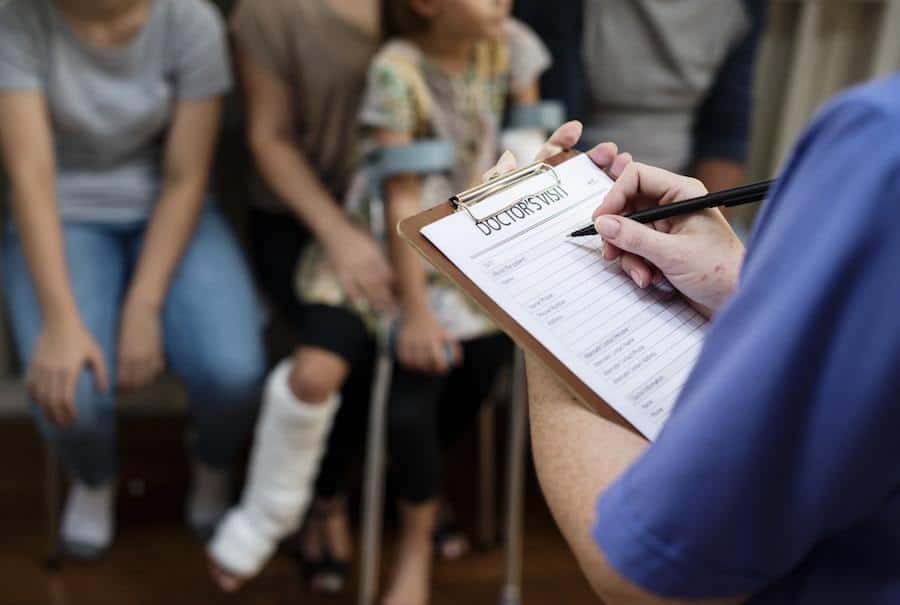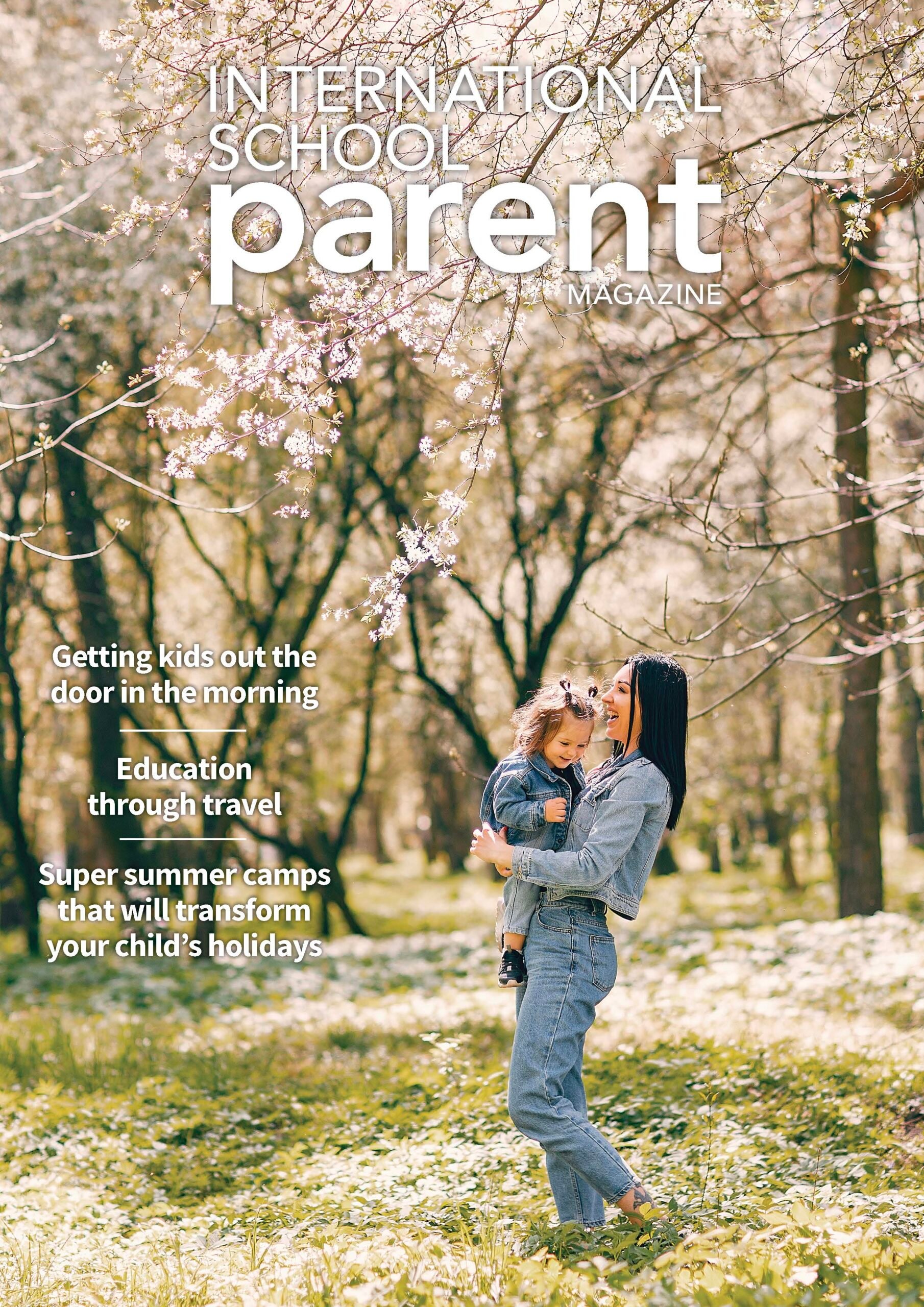Back-to-School Health Checklist for Parents

New shoes, new school clothes, new pencil cases, new friends and new learning opportunities: the new school year is full of excitement! Perhaps your family has just arrived in Switzerland, or maybe you’ve been here for a while. Whichever the case, “La Rentrée” as we call it in the French-speaking parts, is a great opportunity to tick off the following checklist and make sure that you are prepared for what the new academic year has in store for your family’s health.
Keep the school in the know
Does your child’s school know about any health problems they may have? These could include allergies, asthma, diabetes, seizures or other chronic illnesses, or perhaps physical restrictions affecting their participation in sports activities. It is important that staff members are well informed so your child can be helped should they become unwell during the school day. Most schools will have questionnaires to be completed at the beginning of each school year where a child’s health problems can be listed. Make sure you give full details.
Medication matters
Perhaps your child needs to take medication every day, for example, for asthma or for diabetes. Or it may be that medication needs to be available for an emergency situation only. For example an EpiPen® during a severe allergic reaction, or medication for a child who has seizures.
Whatever the situation, you should make sure that the school is informed, that you provide the medication, that expiry dates have been checked, and that there are school staff members trained in how to administer it. An individualised care plan should be completed for your child by their doctor, you as their parent, and also the school. This is so that everyone agrees and is aware of when and how medication should be given.
For medication that is only needed for short periods, for example eye drops or antibiotics for minor infections, again, ask your child’s school for their specific policy on this. Make sure that you complete any paperwork in full and provide the medication, in its original container, with specific instructions.
Vaccinate, vaccinate, vaccinate
It can be easy to miss your child’s vaccination boosters, especially for families moving internationally on a regular basis. Vaccination schedules may also vary a little between countries. The end of the summer holidays is a great time to make sure everyone in your family is up-to-date. The recommended Swiss vaccination schedule can be found here in French, German and Italian: https://www.bag.admin.ch/bag/fr/home/themen/mensch-gesundheit/uebertragbare-krankheiten/impfungen-prophylaxe/informationen-rund-ums-impfen/schweizerischer-impfplan.html
Unwell at school: what’s your plan?
Does the school know how to reach you if your child feels unwell, or in case of an emergency during the course of the school day? For working parents, it can cause disruption if they receive a call from school saying their child is ill. Do you need a back-up plan in place: an extended family member, nanny, neighbour or friend for example? Keep the school informed and make sure phone numbers are up-to-date. And also make sure that your child knows the plan.
Time for a check-up?
Again, it’s a great opportunity to include a routine check-up for your child with your family doctor or paediatrician in preparation for the new school year. When was the last time their eyes, hearing, weight and growth were checked? And what about a trip to the dentist? If you’ve just moved to a new country or new area, ask other parents for advice about good local doctors and dentists. Asking for recommendations from others is usually fruitful.
Emergency preparedness
Even if you’re Switzerland-savvy, take the opportunity to remind everyone in the family what number to call in an emergency in this country. Medical or other. It’s 144 that gets you straight through to an ambulance. But what if you’re over the border in France or Italy, or you pop to London for the weekend? The Europe-wide emergency services phone number is 112. In many cases, this will connect you to the Police (including in Switzerland). However, they should then be able to patch you through to the emergency service that you need.
A great way to teach young children the Europe-wide emergency services number is for them to think about the fact that they have 1 mouth, 1 nose and 2 eyes, pointing to these as they move up their face and arriving at 112!
For families with smartphones, make sure everyone downloads the free Echo112 Pocket Lifesaver App https://www.echo112.com/en/.
This doesn’t just work in Switzerland but also in many other countries throughout the world. Once you launch the App, it uses GPS coordinates from your mobile phone to detect what country you are in. The emergency service numbers for that country are displayed on your screen, you can choose which service you require and can then make your call through the App. Tell the operator that you can be located using Echo112 and your exact GPS coordinates can be transmitted to the ambulance, fire, police or mountain rescue services.
For those medical situations that are less of an ‘emergency’, use your school parents’ network to learn how to contact a doctor out-of-hours in your local area. Preparing for the worst in advance helps to reduce stress if and when the need ever arises.
Back-breaking backpacks
With all the books, a packed lunch, pencil cases, sports kit and other stuff, it’s easy for kid’s backpacks to fill up. They can lead to back pain and injury if they’re too heavy and/or are worn for too long. Advice is that a child’s backpack should not weigh more than 10-15% of their body weight. Choose wisely: a lightweight backpack with broad, padded shoulder straps, a padded back and a waist strap is recommended.
The dreaded head lice!
One thing that most parents hope to avoid is head lice in the family as a ‘back to school’ gift. Two myths need to be busted. They actually like clean hair just as much as dirty hair. Also, you should only use treatment if live lice are found.
A great brochure has been developed by the Children and Young People’s Health Service in Geneva all about head lice. It includes how and when to look for them, and how to treat them. It’s available in English and a number of other languages and is definitely worth a read:
http://ge.ch/enfance-jeunesse/media/site_enfance-jeunesse/files/imce/doc/publications/les-poux-sont-de-retour-en.pdf
With these health-related tips in mind, good luck with the new school year everyone!
About the Author
Dr Michelle Wright is a British-trained General Practitioner and Executive Director of HealthFirst, providing dynamic First Aid Training and Health Education in English throughout Switzerland (www.healthfirst.ch). She also has a regular radio show about health on World Radio Switzerland (www.worldradio.ch/healthmatters).
More from International School Parent
Find more articles like this here: www.internationalschoolparent.com/articles/
Want to write for us? If so, you can submit an article for consideration here: www.internationalschoolparent.submittable.com
